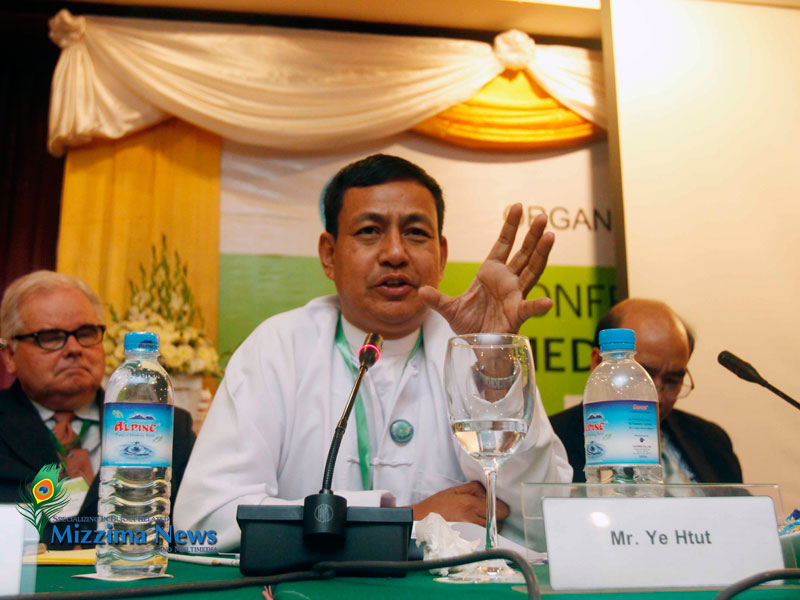A degree of "chaos" is inevitable as Myanmar undergoes a transition to democracy, President Thein Sein's spokesman told AFP, appealing for unity in the wake of deadly religious violence.

At least 43 people were killed while mosques and homes were destroyed in Buddhist-Muslim unrest in central Myanmar last month, casting a shadow over widely praised political reforms.
Presidential spokesman Ye Htut conceded the end of decades of authoritarian military rule two years ago had laid bare sectarian fault lines in the ethnically diverse nation formerly known as Burma.
"We cannot avoid this time of chaos but what we're trying to do is create a good legal framework to overcome all these challenges," he said in an interview in the capital Naypyidaw.
"We need to strike a balance between freedom and responsibility of the society," he added.
Some nationalist monks are among those accused of violence and ramping up anti-Muslim rhetoric via the Internet, raising tensions between communities that once lived side by side.
Ye Htut said the wave of hate speech was the ugly by-product of new freedoms allowed by the reformist government.
"In the past, the military tightly controlled the press and the political movements," he said.
"With freedom of expression we have found out that there were was a lot of hate speech, extremist religious ideas, racial discrimination."
Since taking power two years ago, former general Thein Sein has freed hundreds of political prisoners, welcomed Aung San Suu Kyi's opposition party into mainstream politics and liberalised swathes of the economy.
In response, the international community has rolled back many of the sanctions imposed in response to past human rights abuses, and promised huge sums of development aid and foreign investment.
But fears abound that the progress of the impoverished nation—home to several major religions and a patchwork of ethnic groups—could unravel if the violence worsens.
Echoing comments made by the president last week, Ye Htut said "extremist ideas" risked damaging the fragile democratic gains.
"The government alone can't do it all," he said, calling on Myanmar's people to "understand each other" and overcome their mutual distrust.
Myanmar's security forces have faced criticism from Muslims and rights groups for allegedly standing by while Buddhist mobs went on the rampage during the recent unrest.
It follows similar accusations during an eruption of violence last year between Buddhists and Rohingya Muslims in the western state of Rakhine that left scores dead and tens of thousands—mainly Muslims—displaced.
Ye Htut admitted that the authorities were caught out by the latest unrest, which was apparently triggered by a row in a gold shop in the town of Meiktila, and said the local police were initially overwhelmed.
"On the streets, people fleeing were with the rioters and looters. You could not differentiate between all the groups," he said, adding even "very modern British police" could not control riots in 2011 in their major cities.
"It's easy to blame people but when you put yourself in their situation, you see that it is very complicated."
Ye Htut said the authorities had arrested nearly 120 people in connection with the violence, including on charges of murder and arson, while dozens more were on the run.
But he declined to identify those arrested for fear of creating further tensions that could deepen the challenge for the reformist government.
Thein Sein has "set a vision for a new democratic Myanmar" even if some parts of the society find it hard to accept it for now, he said.
"It's not a simple issue. It's very complex. And when people have fears, they're going to the extremes."


